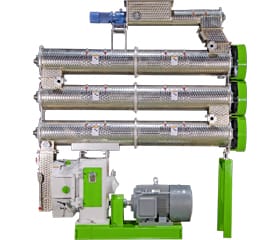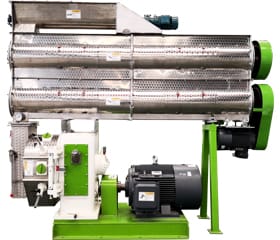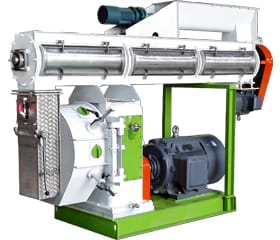What are the reasons for the stress response of laying hens? How to prevent?
In the process of feeding and management of laying hens, it will encounter stress caused by factors such as high temperature, low temperature, immunity, transfer, beak cutting, feed change, laying, water cut, and power cut, which will affect the growth and development of chickens and laying performance. The play caused a bad effect. If the majority of breeding managers actively take effective measures to prevent and control, the losses caused by stress can be reduced to a minimum.
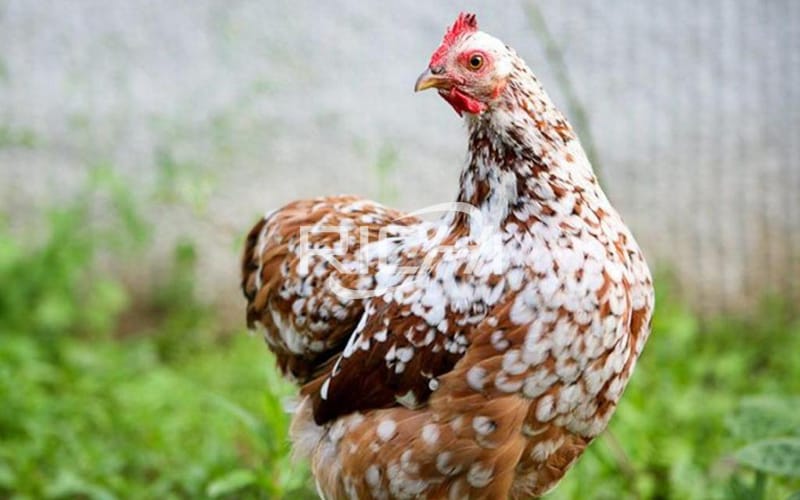
1. Factors that cause stress in laying hens
(1) High temperature stress: When the body temperature of chickens exceeds 27°C in summer, high temperature stress will be caused to the chickens.
(2) Low temperature stress: When the body temperature of chickens in winter is lower than 4℃, low temperature stress will be caused to the chickens.
(3) Immune stress: The behaviors of catching and injecting chickens during immunization of chickens will all produce physical immune stress to chickens. The process of vaccine production of antibodies is physiological stress.
(4) Group transfer stress: When the brooder house is transferred to the breeding house, or the self-bred house is transferred to the layer house, the catching and transportation process will cause the transfer stress to the flock.
(5) Beak cutting stress: Whether it is the beak cutting method of the soldering iron or the infrared cutting method, it will affect the feeding of the chickens to different degrees, and bring the beak cutting stress to the chickens.
(6) Feeding stress: Chicken flocks have different requirements for nutrients at different growth stages, so feeds need to be changed in a timely manner during production management. However, due to the difference in nutrient composition and taste of different material numbers, it brings varying degrees of stress to chickens.
(7) Egg-laying stress: When the chickens start to lay, their own egg-laying behavior has a greater impact on the body, which can bring different degrees of egg-laying stress.
(8) Water cut and power cut stress: The occurrence of sudden water cut and power cut breaks the daily drinking, feeding and growth laws of the chickens, and brings water and power cuts to the chickens. In addition to the above 8 common stresses, the factors that will also bring stress to laying hens include wind stress from door cracks or wall cracks in winter, high-density feeding stress, and stress of harmful gases in the house.
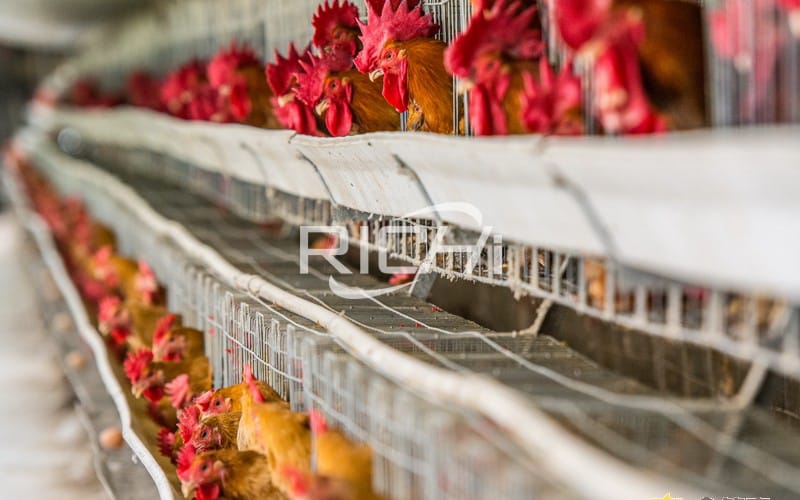
2. What are the preventive measures for stress?
(1) Create a suitable chicken house environment
Create a good environment in the chicken house, do a good job of heatstroke prevention and cooling in summer and cold protection and warmth in winter. The temperature in the house is controlled within the range of 15~28℃; the relative humidity is maintained at 50%~60%, and the air circulation in the house is guaranteed every day. Clean the manure more than twice to prevent harmful gases from exceeding the standard; keep the house quiet to prevent sudden noise and intimidation; maintain a suitable stocking density, and cage hens occupy a large area of 500 cm2/head of the cage.
(2) Scientific breeding and strengthening management
According to the different growth and development stages of chickens, formulate scientific and reasonable feed formulas to meet the nutritional needs of chickens. Moldy and deteriorating feeds are strictly prohibited; feeders should be fixed, regularly and quantitatively fed, with sufficient drinking water supply, and equipped with power generation equipment. ; Implement the correct lighting system, implement 8 hours of light for growing chickens, 16 hours of light for laying hens, and the appropriate light intensity is 20 lux; work such as catching chickens, cutting beaks, preventing epidemics, and transferring groups should be carried out at night as much as possible.
(3) Feeding anti-stress additives
①Vitamin
Flocks should be finely fed when they are under stress. Vitamin C is added to the diet to help chickens under heat stress to maintain normal body temperature. Feeding vitamin C to heat-stressed chickens can restore the concentration of sodium, protein and cortisol in the plasma to normal. Vitamin E has the effect of protecting cell membranes and preventing oxidation. High levels of vitamin E can reduce the permeability of cell membranes and reduce the release of creatinase in muscle cells during stress, thereby preventing excessive calcium ion influx and causing damage to normal The interference of cell metabolism, vitamin E can also relieve the immune suppression caused by the release of adrenaline at high temperature.
②Trace elements
Stress can cause chickens to be relatively deficient in certain trace elements or increase their requirements. Appropriate supplementation can alleviate the stress response. It can also be supplemented with zinc, iodine, and chromium.
③Electrolyte
Chickens breathe faster during heat stress, exhale a large amount of CO2, and reduce the HCO3- content in the blood, which is prone to respiratory alkalosis. Adding electrolytes such as sodium bicarbonate, potassium bicarbonate, sodium chloride, potassium chloride to drinking water or feed can maintain acid-base balance and relieve heat stress.
④Microecological additives
At present, the addition of microecological agents to animal feed has been widely used in animal husbandry production. In the poultry industry, due to the weak stress of poultry, the unfavorable breeding environment often destroys the microecological balance of the digestive tract, reduces production performance, and weakens disease resistance. Probiotics can just solve these problems. A large number of experiments have proved that probiotics can significantly increase the daily weight gain of young birds, enhance their resistance, and improve product quality.
⑤Other additives
Some additives can promote the digestion and absorption capacity of chickens' nutrition and antiviral ability, and also have anti-stress effects, such as Chinese herbal medicine additives and enzyme preparations.
(4) Do a good job in disease control
Keep the chicken house clean and clean, and disinfect regularly; strictly implement the immunization program and regularly perform immunization prevention to prevent the occurrence of epidemics; adopt the "all-in, all-out" breeding method. After the laying hens are raised, the chicken coop should be vacant for a period of time. Enter new chicks after disinfection; prohibit outsiders and other items from entering the chicken farm to completely eliminate insects and prevent the spread of disease sources.
[More info about chicken feed]
(1)how to make chicken feed for layers?
(2)how to start layer chicken feed business in kenya
(3)5 ton per hour poultry layer animal feed processing plant
(4)layer chicken feed production machine
(6)1 ton per hour poultry chicken layer feed pellet making plant
(7)10t/h chicken feed pellet production machine line for layer feed
If you want to built one complete pellet production line in your country, pls send the inquiry to us. We will customized design according to your requirement.

